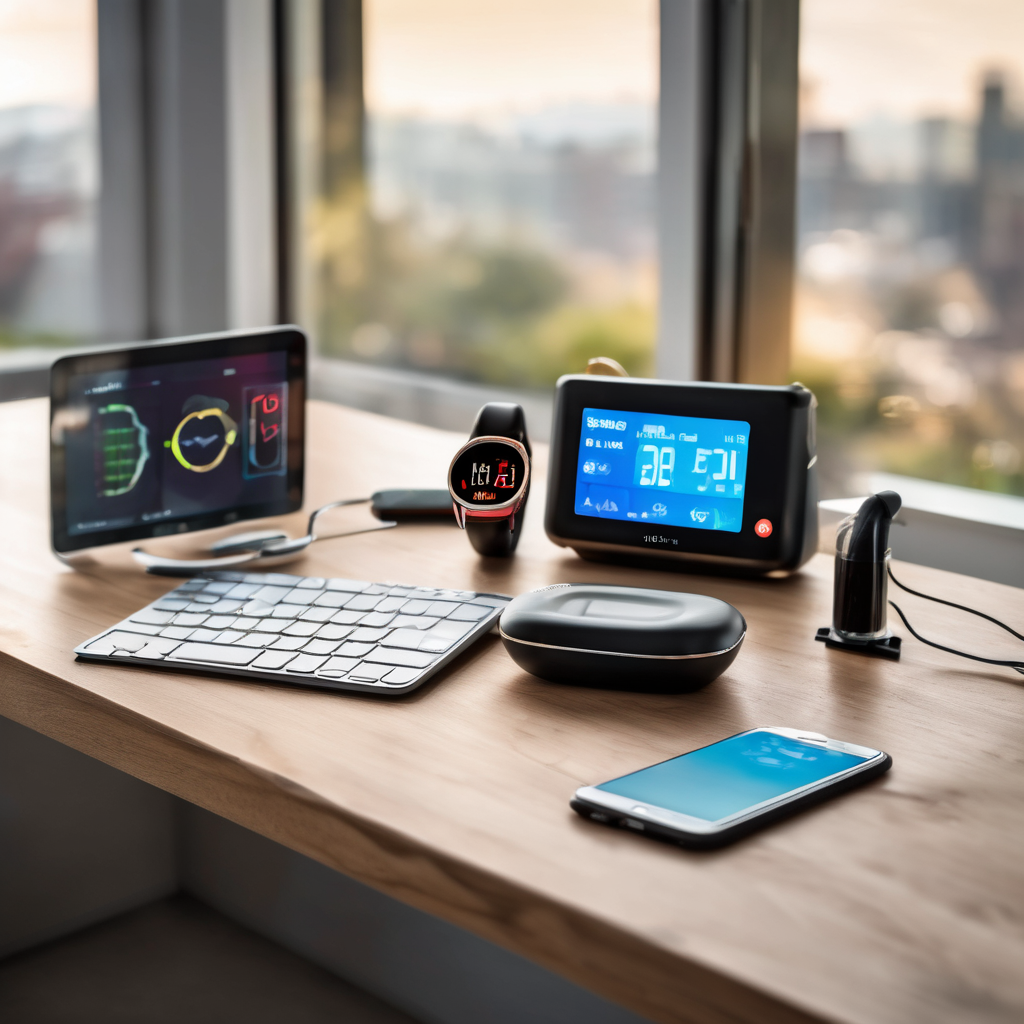
Cancer continues to be one of the foremost health challenges worldwide, accounting for millions of deaths annually. However, the tide is slowly turning thanks to remarkable advancements in health technology. A striking fact: it is estimated that nearly 80% of cancers can actually be prevented through early detection and lifestyle changes. This revelation shines a hopeful light on the future of cancer prevention. At the heart of this change lies smart health monitoring—a cutting-edge approach that melds genetic science, artificial intelligence (AI), and wearable devices to create personalized cancer prevention strategies. Unlike traditional one-size-fits-all health plans, this innovative technology offers individuals a tailored roadmap to reduce their cancer risk, essentially putting the power of prevention in their own hands.
Smart health monitoring works by continuously analyzing a range of health data to paint a comprehensive picture of an individual’s cancer risk. This starts with personalized cancer risk assessments, where AI algorithms dissect genetic information alongside lifestyle factors such as diet, exercise, and exposure to environmental toxins. By doing so, these systems can identify who may be more susceptible to specific types of cancer, allowing for precision-targeted interventions. Imagine getting a custom-tailored blueprint that guides you on what nutrients to focus on, which exercises to prioritize, and when to schedule regular health check-ups—all designed explicitly for your unique genetic makeup and lifestyle habits. Additionally, wearable devices and mobile apps serve as ever-watchful guardians, enabling at-home screenings and continuous monitoring. This means earlier detection of potential health concerns without the hassle of frequent clinic visits, which can be a game-changer for busy individuals or those living in remote areas.
The fusion of AI with wearable tech is driving fascinating innovations in cancer prevention. AI diagnostics can process vast amounts of data—from mammogram images to complex genomic codes—spotting subtle patterns that might elude even the most skilled human eyes. For example, AI-powered computer vision is enhancing the accuracy of breast cancer diagnoses, a vital leap forward given breast cancer’s prevalence around the globe. Meanwhile, wearable devices such as smartwatches and fitness trackers are evolving beyond simple fitness monitoring. They now keep tabs on vital signs like heart rate variability, skin temperature fluctuations, and activity patterns—data points that, when analyzed over time, can hint at emerging health issues. Further extending this frontier are mobile health apps capable of analyzing skin lesion photos to detect early signs of melanoma, transforming your smartphone into a crucial tool for skin health vigilance. An intriguing tidbit: scientists are exploring how smart contact lenses might someday measure glucose or cortisol levels via tear fluid, potentially broadening the scope of wearable health monitoring even more.
Platforms like OncoPreventer epitomize this technological revolution in personalized cancer prevention. By combining refined genetic analysis with robust AI, OncoPreventer delivers individualized cancer risk profiles that help users understand their unique vulnerabilities. Following this, the platform crafts bespoke prevention plans involving dietary guidelines, targeted exercise routines, supplementation advice, and tailored screening schedules. One of OncoPreventer’s standout features is its integration of advanced at-home screening tools, which empower users to track key health metrics easily, comfortably, and confidentially. Moreover, the system is designed for continuous improvement—monitoring changes in users’ health data and updating prevention plans accordingly ensures that the guidance remains relevant and effective over time. This adaptive approach is particularly vital given how dynamic our health and habits can be. It’s like having a personal health coach that evolves alongside you.
Looking ahead, the future of smart health monitoring is dazzlingly innovative. Experts forecast that by 2035, wearables will undergo a radical transformation—not just watches and bands, but smart patches, contact lenses, even everyday objects like clothing and steering wheels infused with sensors for seamless health tracking. The devices will sport revolutionary battery life, potentially running for years without charging by harnessing body heat or ambient light. Sensors will become increasingly sophisticated, monitoring a wide range of biomarkers with pinpoint accuracy. AI will take center stage, translating these mountains of continuous data into actionable insights in real time. Wearables won’t just be passive collectors—they’ll actively guide users, predict illness onset, and even facilitate smooth communication with healthcare professionals. There’s even speculation about wearables enhancing social interactions through augmented reality features like face recognition linked to medical data, enriching personal connections. Such futuristic technologies promise to weave health monitoring so seamlessly into daily life that protecting against cancer could become both effortless and highly effective.
Smart health monitoring marks a profound shift in how we approach cancer prevention. By combining personalized risk assessment with continuous, adaptive health management, this paradigm empowers individuals to take charge of their well-being like never before. With platforms such as OncoPreventer leveraging the strengths of AI and wearable tech, we are stepping into an era where early detection and prevention are more achievable and personalized. This transformative journey not only offers hope for reducing the global cancer burden but also inspires a future where technology and human health dance in harmony toward lasting wellness.
#SmartHealth
#CancerPrevention
#WearableTech
#PersonalizedMedicine
#AIHealth
#OncoPreventer
#FutureOfWellness
Leave a Reply